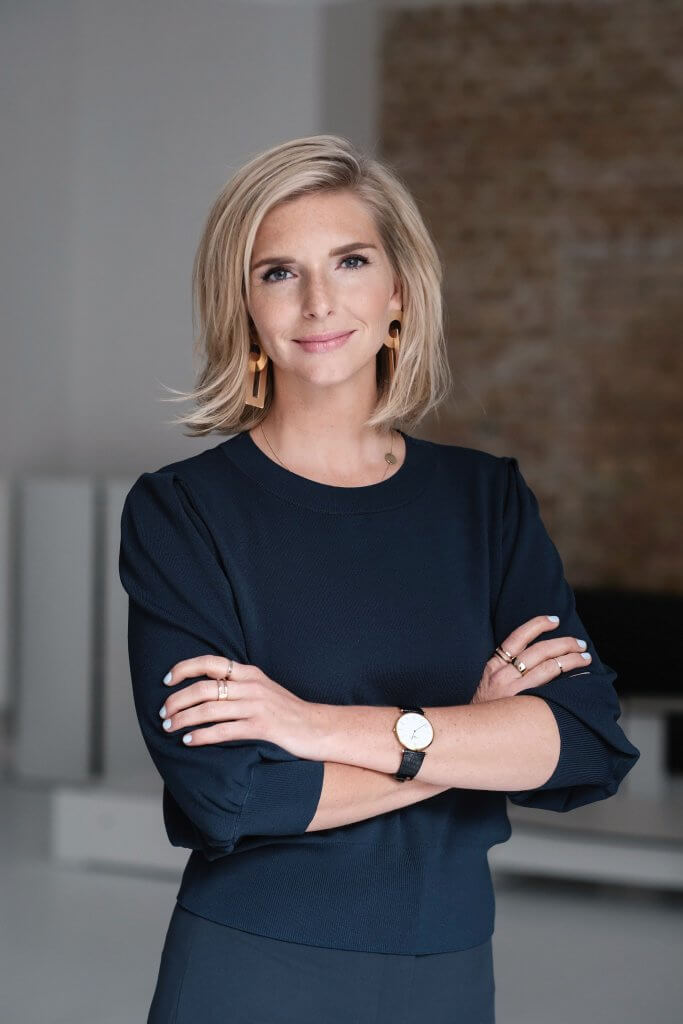
Ms. Cramer, what is it that drives you – in wild times like these?
My boundless optimism and my desire for change! I also see every crisis as an opportunity for positive disruption. Finally, digitization is bringing movement into areas where a lot has been overslept so far, for example in schools or public authorities. Conventional stationary business models have to manage the change to online. As a passionate digital entrepreneur, I think this is an exciting process that we are currently witnessing.
What can actually come after a successful sextoys revolution?
Hopefully many more successful revolutions. What has always driven me at AMORELIE was the shifting of social boundaries. We have freed the love life from taboos and established it as an integral part of our own lifestyle. I am proud of that. At the same time, there are other areas in which we still have a lot to do socially: For example, the lack of financial literacy among women is an issue that concerns me.
They were just 25 years old when they founded AMORELIE together with a partner. How did you experience the jungle of investors as a young woman? What were the obstacles you had to overcome as a start-up founder?
For me, the challenges of founding a company were exactly the same as those of my male co-founder: we had to learn how to lead people, build a viable team and define our role as CEOs in order to also be Chief Motivational Officer. At the same time, we had to convince investors and find a business model for a tabooed market where you weren’t even allowed to do real marketing. Because sex toys rank equally with gambling, tobacco, weapons and alcohol in advertising regulation. Investors always had to be clear: they are investing in an equal team. When an investor constantly looked at my co-founder during a conversation, I said at some point: “You´re certainly not doing it on purpose, but you have to start looking at me. I am not the PR face of the company, but one of the two managing directors of the company you want to invest in”. That helped, and we are still familiar today.
To make sex toys socially acceptable – what else did it take to succeed as an entrepreneur besides a good idea?
Enthusiasm, drive and strategic creativity! There are two ways to live your life: either as if nothing is a miracle, or as if everything is one’, as Albert Einstein said. So: Only those who fall in love with their idea and radiate it can convince others of the idea. Drive is the be-all and end-all. “Can’t be done, doesn’t exist” is the most important motto in a start-up. If the answer is “no”, you don’t give up, but think instead: “How could it work nevertheless?” A bullhead and a little stubbornness will help. Besides, when things get tough, founders go into the wind and fight their way through storms. As a founder you have to be creative and dynamic and adapt to change. You have to develop new ideas, recognize innovations and use technological developments in an optimal way. This strategic creativity requires flexibility in the mind.
Why did you leave AMORELIE at the end of 2019?
I’ve always made up my mind to leave when everything in me says “Stay”. That was in 2019. We had launched exciting new projects and markets and started cooperations with partners like Douglas. At the same time, I knew that the company needed someone other than me for the next phase of internationalization and scaling. Our most important value at AMORELIE has always been: ‘No Ego. Company First. Always!’. I wanted to live up to that. With Apple manager Claire Midwood we had found the perfect person for the CEO role. I could leave with absolute confidence. I’m very grateful for that.
You have two small children at home. Is motherhood not so easily compatible with your entrepreneurial spirit after all?
Do you ask men these questions too? Seriously: I am a passionate entrepreneur and mother. It is never easy to balance everything and with us it only works with a big support system of grandparents, aupair and so on. What’s most important to me is that I show my kids that they can be everything – passionate entrepreneurs, full-time parents, whatever their dream is.
How should one rethink leadership in this context?
As a leader you should be serving your team. That also means: To make as much as possible so that everyone can reach their full potential. For working parents, this means enabling flexibility, showing understanding, creating a framework in which kids and job can be well combined. At AMORELIE we have over 70 percent women in management positions, we organise emergency nannies and have even discussed the establishment of a company day-care centre. Leadership means here: Asking employees what they need in order to make the most of their abilities.
Today you are an investor yourself and still almost alone among men…
It is a real problem that there are so few female investors. First of all, it doesn’t make any economic sense, as various teams achieve better results. And, of course, because women decide over 70 to 80 percent of total consumer spending and therefore play an incredibly important role in understanding product trends. Secondly, I can already see a correlation that the lack of female investors also leads to a lack of investments in startups managed by women. According to Atomico, less than one percent of venture capital in Europe goes to women-led start-ups! This is perhaps also due to unconscious prejudices or the fact that male investors do not understand certain femtech products.
What about the German start-up scene? Does Germany need more entrepreneurial spirit?
The entrepreneurial spirit is really underdeveloped in Germany. You can already see that with the investors. While the Americans are sucking up ‘Think Big’ with their mother’s milk, in Germany there are more sceptics. If there is no confirmed and solid business case yet, the outlook for investments is very bad. Here we invest more in Excel spreadsheets than in ideas. But I also see a need to catch up with potential founders: We need to establish entrepreneurship as a real career option. Not only for business people. University graduates should know and consider entrepreneurship as well as careers in companies, consulting or public service.
Is the Corona crisis threatening an entire generation of young entrepreneurs?
Start-ups were forgotten in the rescue parachutes of politics for a long time. Only with the pressure of the startup association is there now finally support, especially for VC-financed start-ups. The threat is existential, especially for many small start-ups; also, because they cannot get bank loans. I was impressed by the fact that many founders did not drop their heads, but helped to produce protective clothing or breathing masks, for example, or to push the development of the Corona app. This was proof for me once again why we need the start-up scene so urgently and why my heart is attached to it. No, there will always be entrepreneurship and perhaps in times of crisis it will be even more necessary than before.








